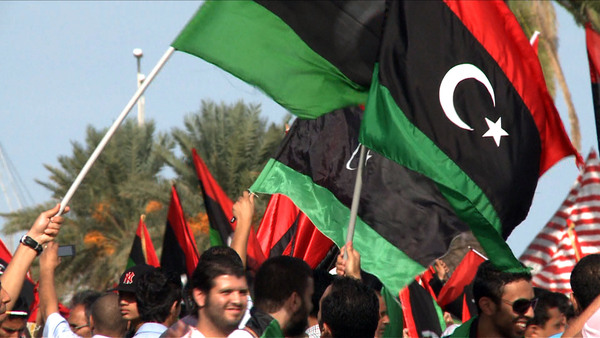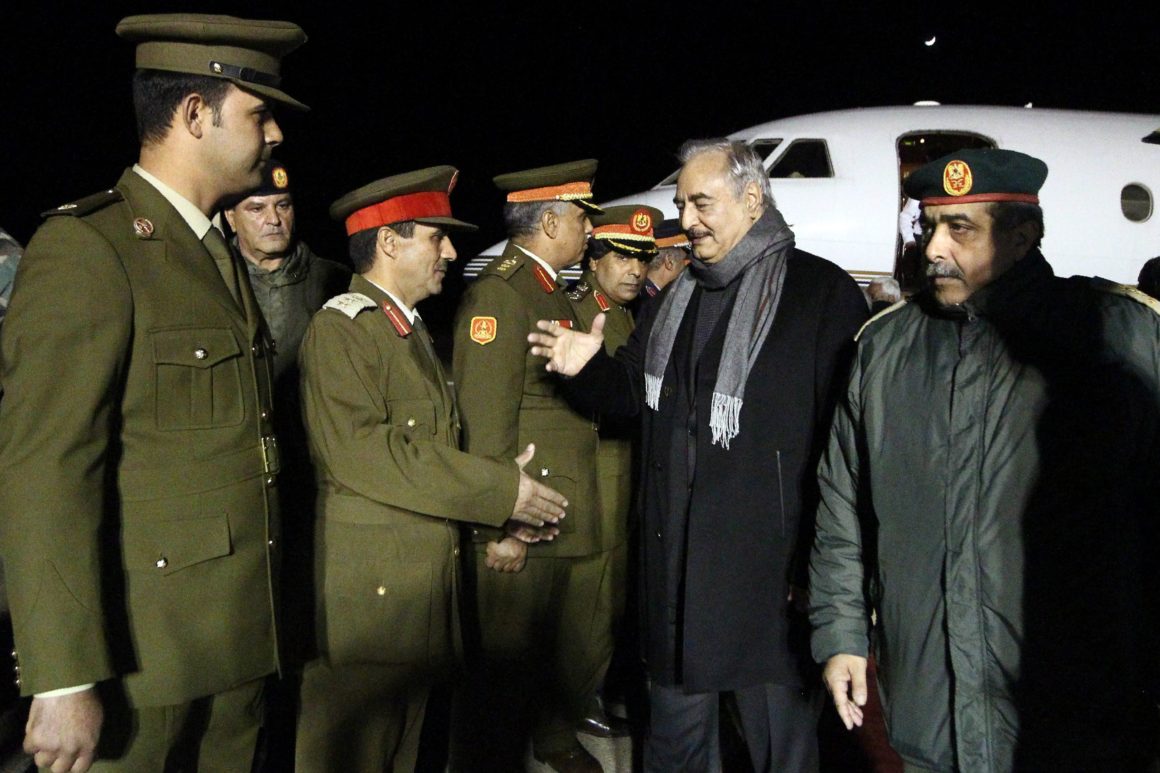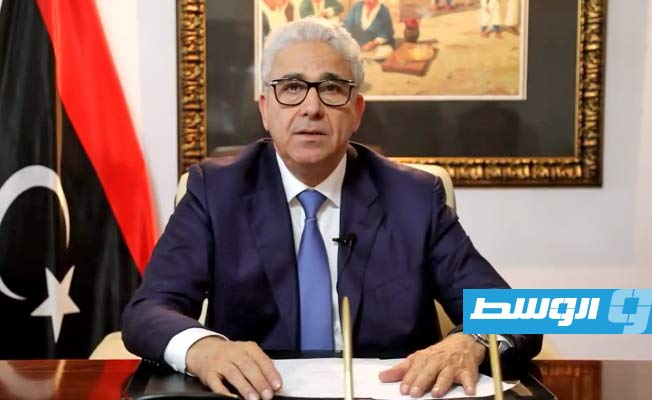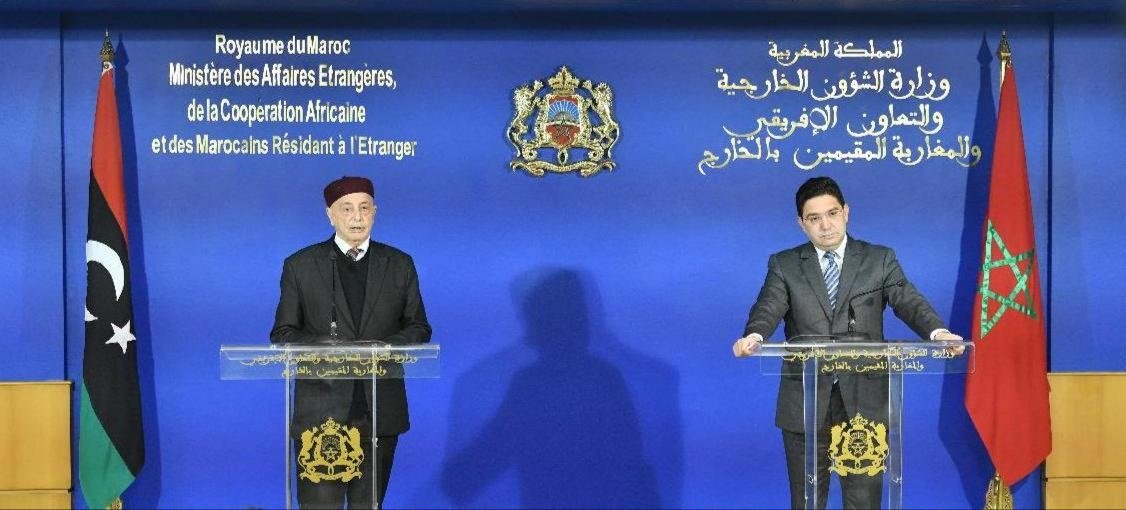
It has been more than a year since Muammar Gaddafi died during the Battle of Sirte, his home town, thus symbolically bringing Libya’s 42-year-long nightmare to its end. Since then, Libya has experienced a relatively speedy transition from Gaddafi’s brutal dictatorial regime to a fledgling democracy when it held, in July 2012, its first free nationwide election in many decades. While Libya’s government and its people are, by and large, aware that they have a long journey ahead of them, many in the West do not seem to appreciate the very complexity and seriousness of the challenges facing Libya. Some European and American leaders have increasingly voiced their skepticism regarding the ultimate outcomes of the Libyan revolution – and, in fact, of the Arab Spring movement in general. Thus, responding to reports that an angry mob had stormed the US embassy in Cairo, an outraged Andy Card, former White House Chief of Staff, questioned whether “the Arab spring could be turning into an Arab winter.”
Libya sits on vast oil and gas reserves, as well as on massive, yet largely unexploited, deposits of mineral resources, while also enjoying one of the longest and most pristine coastlines on the Mediterranean Sea. Geopolitically speaking, Libya is uniquely positioned to serve as an important link between the European and African continents. However, if it wants to capitalize on this almost unlimited potential to ensure a long-term, sustainable economic growth, Tripoli must first strive to achieve political and security stability. Judging from the distinct character and dynamics of its revolution (and transition process) – particularly when compared with Egypt and Tunisia – Libya will likely face many tough challenges in building a new nation after four decades of tyranny. Libya’s path to freedom and democracy has differed quite significantly from those in neighboring Egypt and Tunisia: First, in contrast to its neighbors, the overthrow of the dictatorship in Libya required a long and bloody civil war. Second, while the Arab Spring uprisings in Egypt and Tunisia ousted their respective strongmen, leaving basic government structures intact, Gaddafi’s departure had left Libya with hardly any functioning vital state apparatus. Last, but not the least, unlike Libya with its weak and fragmented security forces, its neighbors can still boast having powerful, patriotic and loyal national armed forces that are ready to protect their states’ sovereignty.
Hence, on the political front, owing to Gaddafi’s ban on any form of political or civic activism during his decades-long rule, Libya is essentially starting from scratch. It is this area in which established democracies – namely Europe and the United States – can help Libya by providing their expertise, as much as moral support, to ensure the country’s path to a stable and free society. The last year’s peaceful transfer of power from the National Transitional Council to the newly elected National Assembly was only the first step in the right direction that will be followed by parliamentary elections later this year. Yet, not only that the country still lacks an effective central government, it is also still in the gradual process of building a strong national army and an internal-security force to secure Libya’s extensive borderline and provide security particularly in the urban areas.
To this end, on the security front, one of the negative consequences of the long-drawn-out bloody revolution in 2011 has been the omnipresence of arms among the civilian population who is – in view of the widespread sense of insecurity – very reluctant to relinquish its weapons. Libyan authorities have been struggling to provide security since the Gaddafi’s departure. For example, in Benghazi, the city where the uprising began, more than a dozen security officers were killed last year. Last November, Benghazi’s police chief was assassinated in a drive-by shooting and recently the acting head of the criminal investigation department was kidnapped by unidentified gunmen. There has also been a series of attacks against Sufi shrines and mosques, as well as against diplomatic missions and aid agencies in the city, with the most ‘prominent’ being the deadly assault on the US embassy in September last year (during which also the US Ambassador, Christopher Stevens, was killed). Eye-witnesses’ accounts and investigation indicates that these attacks were primarily carried out by militant Islamists or perhaps also by Gaddafi’s loyalists. To deal with the issue of armed groups, Libyan government has announced a plan to integrate a large number of armed individuals into the police force. The underlying idea behind this plan is to provide the “honest revolutionaries”, as the country’s Interior Minister calls them, with decent job opportunities and stable income while persuading them to lay down their arms.
The geopolitical developments in the wider region are also not particularly favorable for Libya – the government in Tripoli is looking with a wary eye toward Algeria and Mali as the French-led military action against Al-Qaeda-linked rebels is currently unfolding. To ensure a better control of its southern borders and fight illegal immigration and illicit activities, such as arms smuggling, Libyan government has ordered the temporary closure of the country’s borders with Chad, Niger, Sudan and Algeria while declaring the southern region a restricted military zone. Talking about Libya’s borders, the Council of the European Union recently approved the crisis management concept for a Common Security and Defense Policy (CSDP) Mission to support capacity building for border management in the country. To help the North African country secure its extensive borderline, the European experts will seek to support Libyan authorities in developing capacity for enhancing border security and assist in developing a sustainable Integrated Border Management concept, strategy and necessary structures.
Once it has achieved political and security stability, Libya has the inherent capacity to sustain a long-term economic growth that would allow the nation to become a powerful force for prosperity and stability in the North African region. As Catherine Ashton, the EU High Representative for Foreign Affairs and Security Policy, asserted: “A civilian mission to build Libyan capacities in border security and management is not only important for Libya, but for the entire region.”
 It has been more than a year since Muammar Gaddafi died during the Battle of Sirte, his home town, thus symbolically bringing Libya’s 42-year-long nightmare to its end. Since then, Libya has experienced a relatively speedy transition from Gaddafi’s brutal dictatorial regime to a fledgling democracy when it held, in July 2012, its first free nationwide election in many decades. While Libya’s government and its people are, by and large, aware that they have a long journey ahead of them, many in the West do not seem to appreciate the very complexity and seriousness of the challenges facing Libya. Some European and American leaders have increasingly voiced their skepticism regarding the ultimate outcomes of the Libyan revolution – and, in fact, of the Arab Spring movement in general. Thus, responding to reports that an angry mob had stormed the US embassy in Cairo, an outraged Andy Card, former White House Chief of Staff, questioned whether “the Arab spring could be turning into an Arab winter.”
It has been more than a year since Muammar Gaddafi died during the Battle of Sirte, his home town, thus symbolically bringing Libya’s 42-year-long nightmare to its end. Since then, Libya has experienced a relatively speedy transition from Gaddafi’s brutal dictatorial regime to a fledgling democracy when it held, in July 2012, its first free nationwide election in many decades. While Libya’s government and its people are, by and large, aware that they have a long journey ahead of them, many in the West do not seem to appreciate the very complexity and seriousness of the challenges facing Libya. Some European and American leaders have increasingly voiced their skepticism regarding the ultimate outcomes of the Libyan revolution – and, in fact, of the Arab Spring movement in general. Thus, responding to reports that an angry mob had stormed the US embassy in Cairo, an outraged Andy Card, former White House Chief of Staff, questioned whether “the Arab spring could be turning into an Arab winter.”

 It has been more than a year since Muammar Gaddafi died during the Battle of Sirte, his home town, thus symbolically bringing Libya’s 42-year-long nightmare to its end. Since then, Libya has experienced a relatively speedy transition from Gaddafi’s brutal dictatorial regime to a fledgling democracy when it held, in July 2012, its first free nationwide election in many decades. While Libya’s government and its people are, by and large, aware that they have a long journey ahead of them, many in the West do not seem to appreciate the very complexity and seriousness of the challenges facing Libya. Some European and American leaders have increasingly voiced their skepticism regarding the ultimate outcomes of the Libyan revolution – and, in fact, of the Arab Spring movement in general. Thus, responding to reports that an angry mob had stormed the US embassy in Cairo, an outraged Andy Card, former White House Chief of Staff, questioned whether “the Arab spring could be turning into an Arab winter.”
It has been more than a year since Muammar Gaddafi died during the Battle of Sirte, his home town, thus symbolically bringing Libya’s 42-year-long nightmare to its end. Since then, Libya has experienced a relatively speedy transition from Gaddafi’s brutal dictatorial regime to a fledgling democracy when it held, in July 2012, its first free nationwide election in many decades. While Libya’s government and its people are, by and large, aware that they have a long journey ahead of them, many in the West do not seem to appreciate the very complexity and seriousness of the challenges facing Libya. Some European and American leaders have increasingly voiced their skepticism regarding the ultimate outcomes of the Libyan revolution – and, in fact, of the Arab Spring movement in general. Thus, responding to reports that an angry mob had stormed the US embassy in Cairo, an outraged Andy Card, former White House Chief of Staff, questioned whether “the Arab spring could be turning into an Arab winter.”


